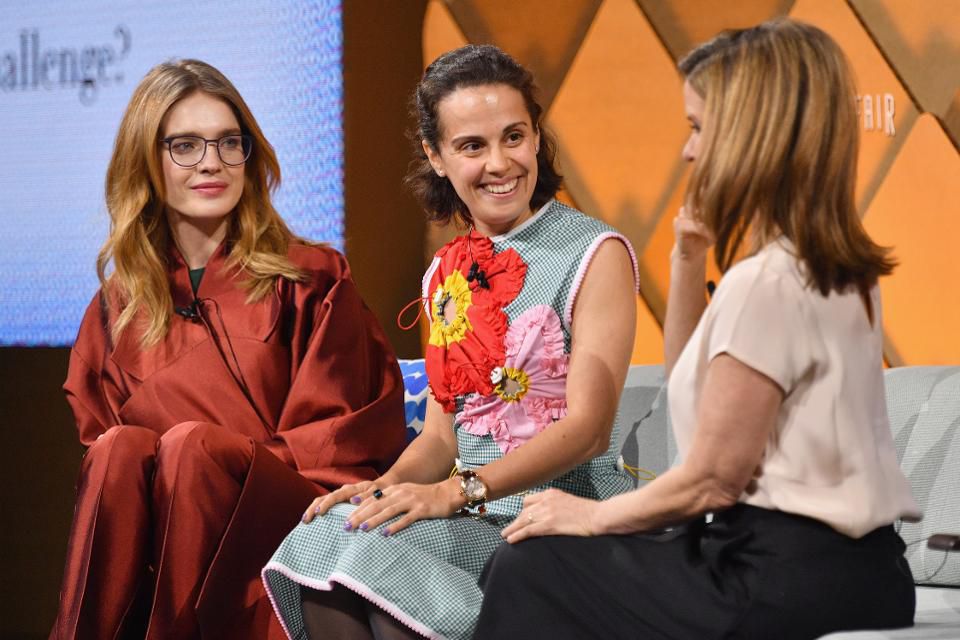“I’m close to artificial intelligence (AI) and it scares the hell out of me,” said Elon Musk during HBO’s Westworld panel at South by Southwest this year. “It’s capable of vastly more than anyone knows, and the improvement is exponential.” Musk cited the example of AlphaGo, Google DeepMind’s artificial-intelligence program best known as the first computer program to defeat a professional human player at the boardgame Go.
copyright by www.forbes.com
 The AI had been trained to tackle the Chinese game “Go,” which is a 2,000-plus year old abstract war simulation. In 2016, Google announced that its program had defeated every other Go-playing software — and a formidable human opponent, Fan Hui, a European champion. Then, it bested the world champion, Lee Sedol, four games out of five, in a competition that was live-streamed on YouTube.
The AI had been trained to tackle the Chinese game “Go,” which is a 2,000-plus year old abstract war simulation. In 2016, Google announced that its program had defeated every other Go-playing software — and a formidable human opponent, Fan Hui, a European champion. Then, it bested the world champion, Lee Sedol, four games out of five, in a competition that was live-streamed on YouTube.
The threat of machines getting smarter than their creators is so real, in fact, that Musk calls for public oversight to ensure the technology is developed safely. “The danger of AI is much greater than the danger of nuclear warheads — by a lot,” Musk said. “Mark my words, AI is far more dangerous than nukes.”
We do not want to be paralyzed by fear. At the annual Milken conference this week, there was a much more optimistic tone as AI was brought up in many of the sessions. The conference highlighted some of the positive real world work being done by women in AI and how AI’s applications are being brought into the present. Women are proving that AI is not limited to the scary future of man vs. machine, they’re running companies currently utilizing AI in healthcare, fashion and retail; real world applications of AI that other women can appreciate and sink their teeth into.
In a Milken session about AI and medicine, Dr. Iya Khalil spoke about AI and healthcare. She is the female co-founder of GNS Healthcare, a healthcare analytics company using the latest innovations in machine learning to turn data into solutions that slow disease progression, reduce adverse events and and optimize therapeutic effectiveness. Khalil is a tech entrepreneur, physicist and inventor that is leading the charge in harnessing data to transform our health.
At Milken, Khalil spoke about how AI and machine learning can reduce drug discovery times and enable precision medicine with the goal of improving outcomes and reducing the costs of R&D. Her goal is to leverage these capabilities to transform medicine from an expert-driven field – with poor predictive power and large gaps in its fundamental understanding of human biology – and transform it into a data-driven predictive science – with a more complete understanding of the mechanisms of disease and response to interventions. […]
read more – copyright by www.forbes.com


“I’m close to artificial intelligence (AI) and it scares the hell out of me,” said Elon Musk during HBO’s Westworld panel at South by Southwest this year. “It’s capable of vastly more than anyone knows, and the improvement is exponential.” Musk cited the example of AlphaGo, Google DeepMind’s artificial-intelligence program best known as the first computer program to defeat a professional human player at the boardgame Go.
copyright by www.forbes.com
The threat of machines getting smarter than their creators is so real, in fact, that Musk calls for public oversight to ensure the technology is developed safely. “The danger of AI is much greater than the danger of nuclear warheads — by a lot,” Musk said. “Mark my words, AI is far more dangerous than nukes.”
We do not want to be paralyzed by fear. At the annual Milken conference this week, there was a much more optimistic tone as AI was brought up in many of the sessions. The conference highlighted some of the positive real world work being done by women in AI and how AI’s applications are being brought into the present. Women are proving that AI is not limited to the scary future of man vs. machine, they’re running companies currently utilizing AI in healthcare, fashion and retail; real world applications of AI that other women can appreciate and sink their teeth into.
In a Milken session about AI and medicine, Dr. Iya Khalil spoke about AI and healthcare. She is the female co-founder of GNS Healthcare, a healthcare analytics company using the latest innovations in machine learning to turn data into solutions that slow disease progression, reduce adverse events and and optimize therapeutic effectiveness. Khalil is a tech entrepreneur, physicist and inventor that is leading the charge in harnessing data to transform our health.
At Milken, Khalil spoke about how AI and machine learning can reduce drug discovery times and enable precision medicine with the goal of improving outcomes and reducing the costs of R&D. Her goal is to leverage these capabilities to transform medicine from an expert-driven field – with poor predictive power and large gaps in its fundamental understanding of human biology – and transform it into a data-driven predictive science – with a more complete understanding of the mechanisms of disease and response to interventions. […]
read more – copyright by www.forbes.com
Share this: